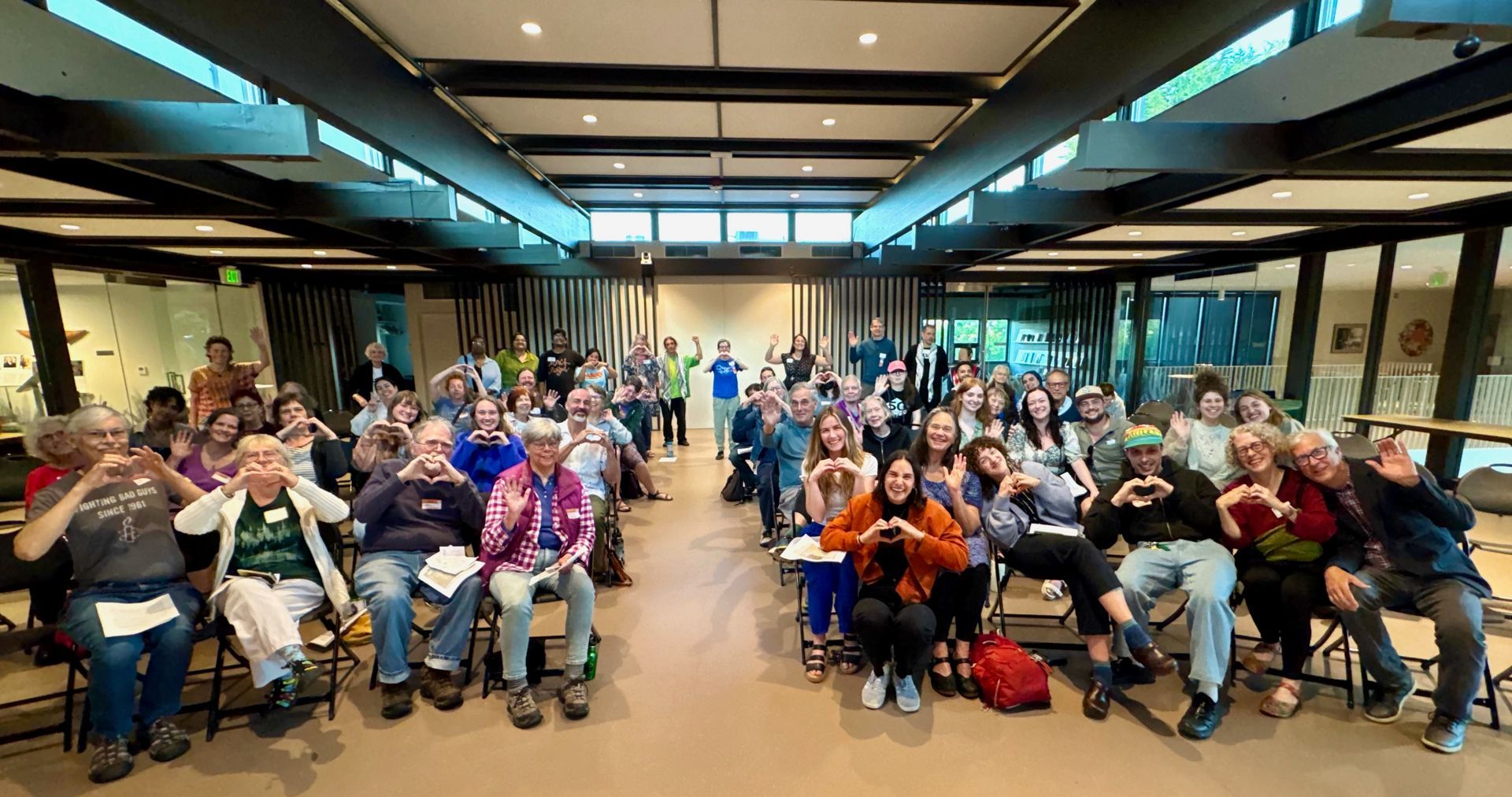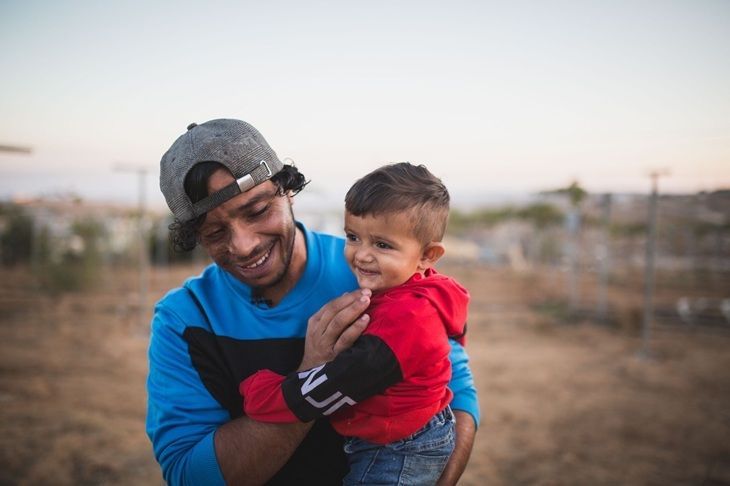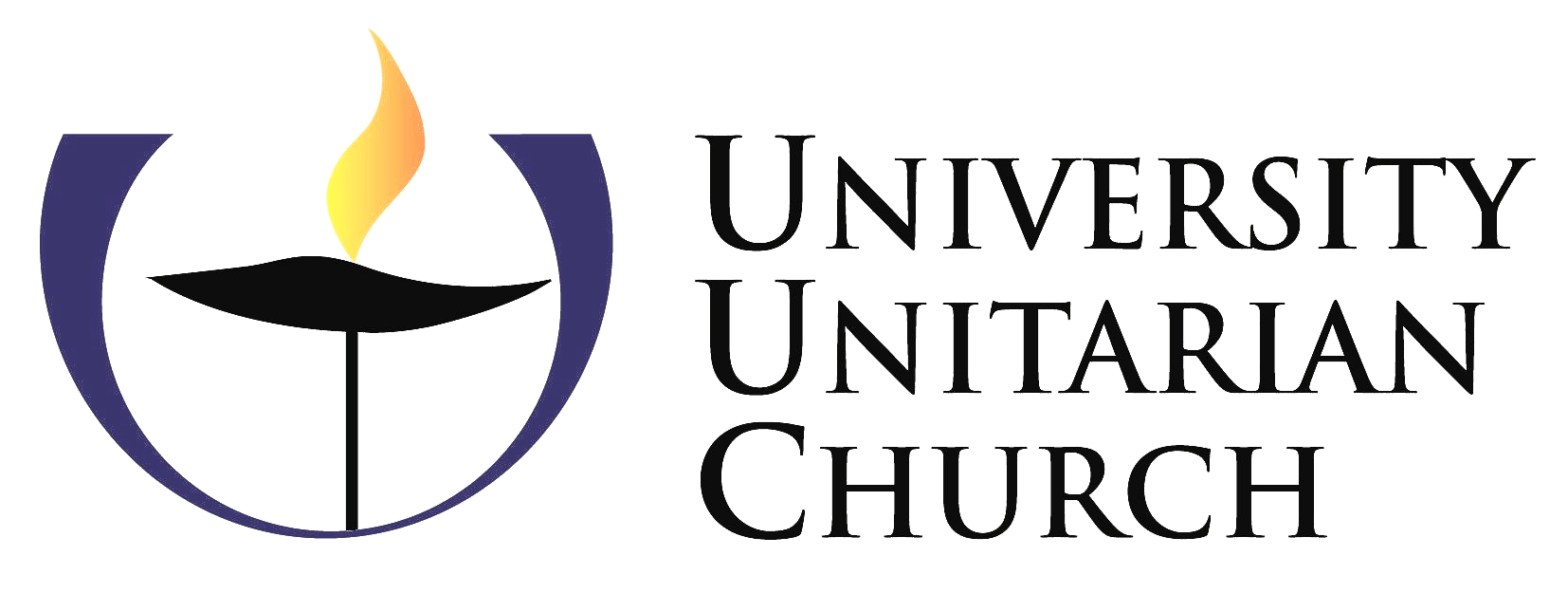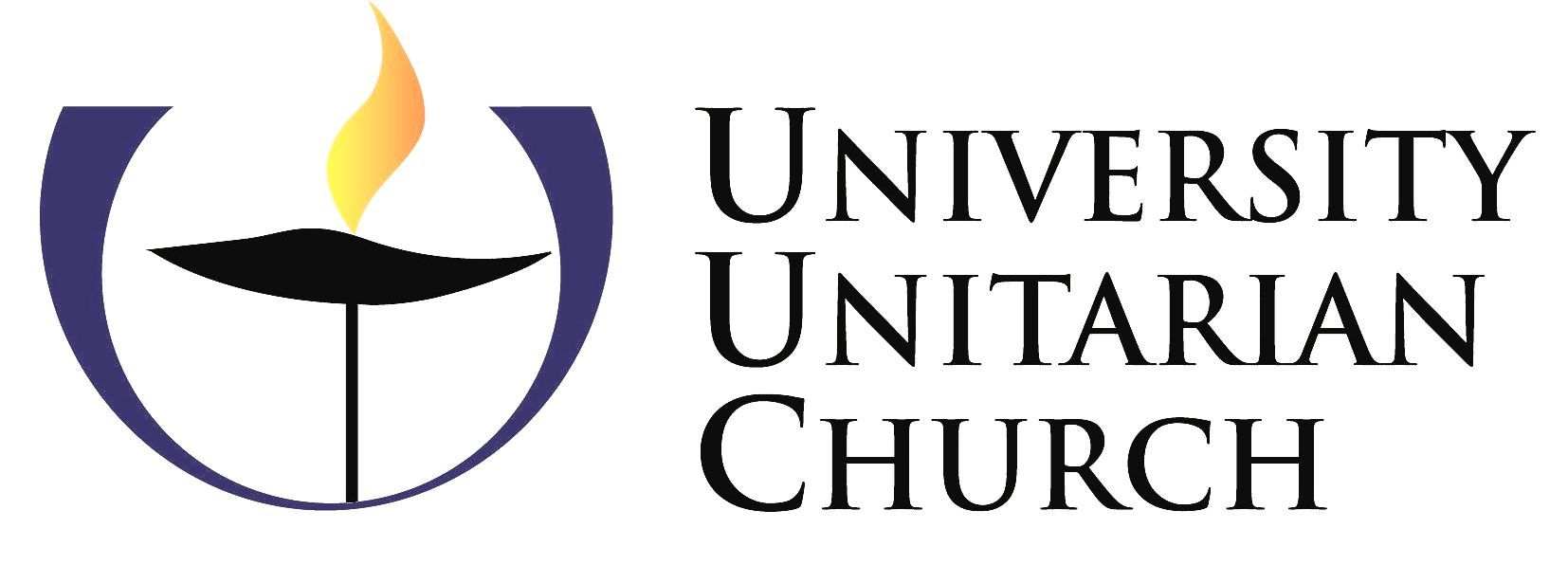From UUC's UUs for Justice in the Middle East (UUJME) group
For months, we eagerly anticipated the arrival of the two Palestinian peace activists from Umm al-Khair in the West Bank’s South Hebron Hills. Awdah Hathaleen, a teacher, and Eid Suleiman, an artist, had planned a tour across the U.S. to talk about their small Bedouin village and its painful struggle to survive encroachment from an illegal Israeli settlement.
The tour was supposed to bring them to UUC on June 16 for an event organized by our chapter of Unitarian Universalists for Justice in the Middle East (UUJME). But Awdah and Eid never made it to Seattle.
U.S. authorities interrogated them upon their arrival at San Francisco airport, revoked their visas and placed them in detention. After 26 hours, authorities shipped the cousins back to the Middle East—without explanation.
But our UUJME event went on anyway, in their absence. Naomi Price-Lazarus, a friend of both UUC and Umm al-Khair, talked about her several visits to the village as a volunteer for the Jewish Center for Non-violence. She told stories about Awdah and Eid: what warm hosts they had been; what loving fathers and husbands they were; how they and other villagers made her laugh and cry. She reported that the Israel military has been busily demolishing homes in Umm al-Khair, while nearby settlers continue to harass and attack the villagers.
Rami Al-Kabra, deputy mayor of Bothell and the only Palestinian-American elected official in WA, also spoke at the event. We had a good turnout, and sent this photo from Nathan Johnson Hall to our missing speakers in Palestine.

Then, in late July, we heard the tragic news: Awdah had been shot and killed by an Israeli settler, Yinon Levi, who previously had been sanctioned by several countries, including the U.S., for violence against Palestinians. (President Trump recently lifted that measure.) Villagers had been protesting efforts by settlers to use an excavator to dig up village infrastructure. Levi, a leader of the settler group, confronted the protesters, brandishing a gun. Awdah was standing further away, filming the incident. He actually recorded his own murder.
Although Levi was arrested and spent a night in jail, he was quickly released by an Israeli magistrate. Remarkably, before being taken away, he encouraged Israeli authorities to arrest more than a dozen Palestinian protesters, including our other missing speaker, Eid. Authorities complied and shipped him and the others to Ofer Prison. You can read about their experience here.
Just as remarkably, Israeli police refused to return Awdah's body to Umm al-Khair unless villagers agreed to hold a brief and very small nightime funeral in a different West Bank town. Villagers refused, and the women went on a hunger strike. Authorities finally relented—sort of. Ten days after his murder, Awdah was buried nearby after a funeral attended by villagers who had to clear three carefully guarded checkpoints.
Levi, meanwhile, has returned to the village with his excavator.
Over the past few weeks, we have read many tributes to Awdah. But this tribute by Emily Click really moved us. It reminded us of stories Naomi told at our June event, and on other occasions, about Awdah's humor, energy, hospitality. About his love.
Even if we didn't get to meet him in person, we have been blessed by Awdah's life, by his work, by his love for his community and the world. He is missed.
The Center for Jewish Non-Violence is raising funds to not only honor Awdah but to support his besieged and amazingly resilient village, Umm al-Khair. If you’d like to contribute, please click here.

Posted/updated on:

